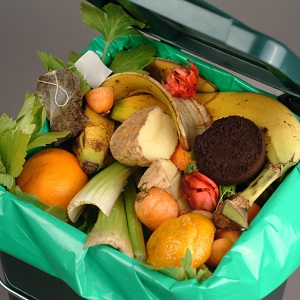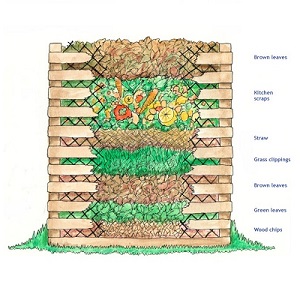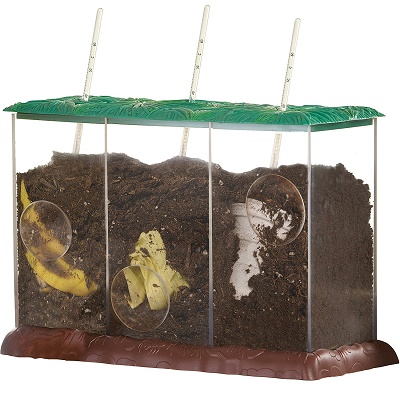Composting can help keep your garden stress-free and your plants healthy and vibrant. It’s a fascinating process and one that’s essential for a high yield, whether you’re planting flowers, herbs, or vegetables.
Table of Contents
What are Some Composting Basics?
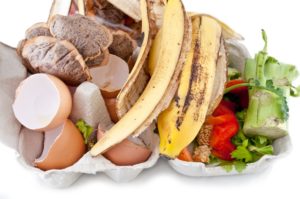
You can begin your composting efforts with a varied pile of kitchen waste. Raked leaves can also make a perfect addition to any compost pile.
These are materials that eventually decompose, and produce organic matter with helpful fungi and bacteria, acids, and enzymes.
These active elements work together to create an addition to your garden soil that will help hold water and add nutrients to the soil. Your plants will love the nutrition and the increased ability to keep insects and diseases away.
Beginning a compost pile is easy and you get rapid results. To begin, remember that the mantra of composting is “two parts brown to one part green“. You can likely guess that brown includes such materials as leaves and dead plants while green includes waste items from the kitchen and new grass clippings.
You don’t have to keep the “mantra” measurements, but it may take a bit longer for the pile to compost and be used in your garden. You can simply throw the browns and greens into a pile and they will eventually compost.
Hot compost is considered the best and is well-managed and measured. It composts rapidly, but the results are the same. If you don’t have enough time to measure and fuss with it, don’t worry.
Another Compost Basics is Size
The size of your compost pile depends on the size of your garden. You don’t have to build up the compost into a heaping and smoking pile, nor do you have to turn it on a regular basis.
There are many sizes and types of composting containers, but you don’t have to have special equipment or devote lots of time to creating a great compost pile that can be nourishing to your garden space.
Composting Basics and Other Types of Composters
There are some other ideas to help your composting efforts such as a worm bin. A worm bin lets you compost indoors with earthworms and lets you use paper products as well as kitchen waste. It produces valuable nutrients from fungi and bacteria.
It is important that you gauge the moisture content of your compost pile, and that is an easy task. A good and well-tended compost pile produces an earthy smell. If you don’t smell the earth when you turn the materials, you probably need to add more water.
Composting Basics and Tasks
If you are an avid gardener, you likely know the benefits and easy task of composting. If you’re a beginning gardener and don’t want to get too involved until you know if you truly have a “green thumb,” composting can add an element of satisfaction and greatly improve your gardening results.
Composting is an act of nature that isn’t a hard science to figure out. It’s simply putting the right elements into a heap and watching the results.
If you want to know more about composting and how to begin in your own garden, look no further than online help or gardening books.
Your local gardening shop is also a great way to become informed about composting in your particular area and learn about composting basics and the best ways to get started.
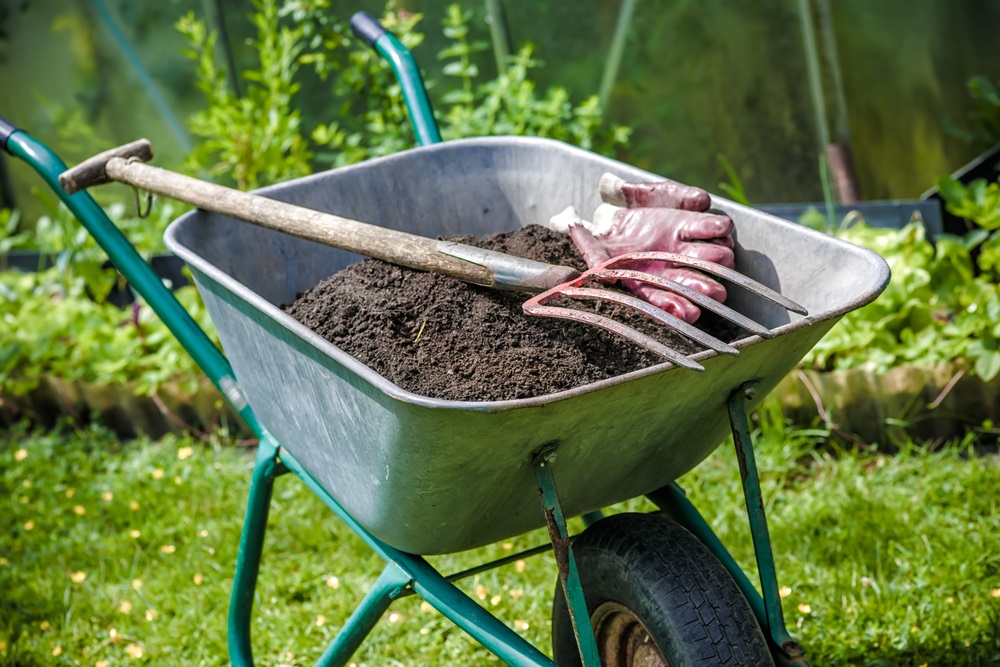
Look at all The Great Composters!


